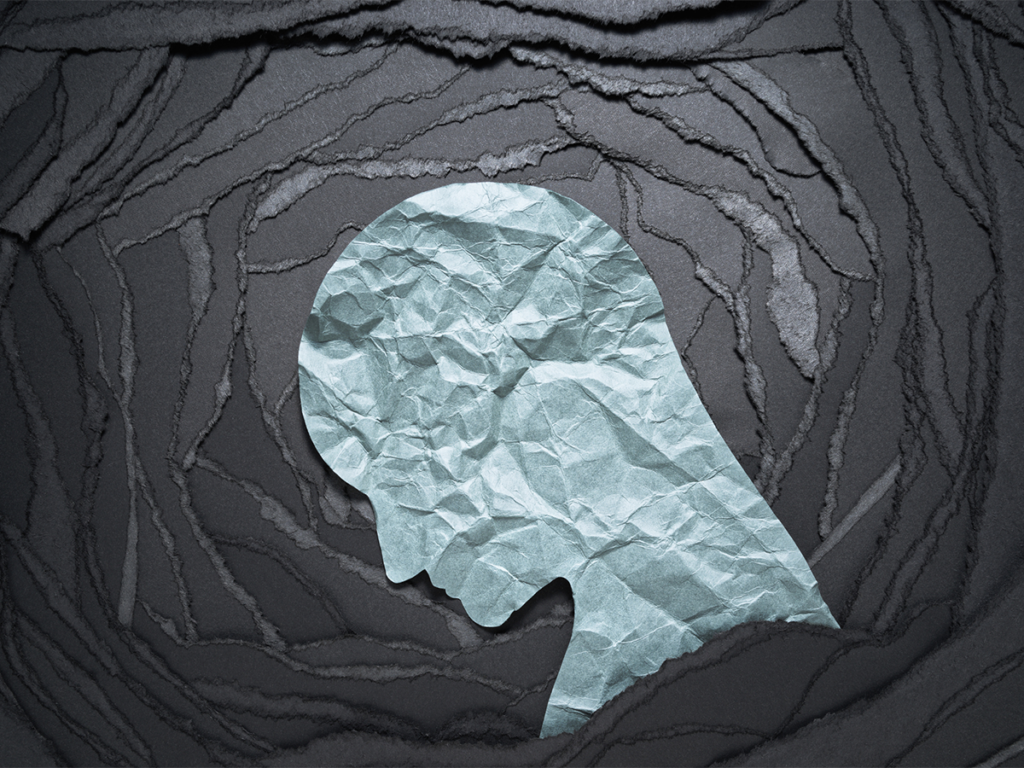A study by researchers at Nanjing University (NJU) has demonstrated that in mice, depression-like phenotypes induced by paternal stress can be inherited by the offspring through a causal role of microRNAs (miRNAs) in the father’s sperm.
An understanding of the epigenetic inheritance mechanism of depression may lead to the development of more effective antidepressant treatments, the authors reported in the February 10, 2021, edition of Science Advances.
“Depression is a debilitating condition with a profound impact on quality of life for millions of people worldwide, but because of the stigma, lack of effective therapies and inadequate mental-health resources, depression is often widely undiagnosed and untreated,” said study co-leader Xi Cheng.
Currently available antidepressants are therefore unsatisfactory, hence the urgent need to uncover the biological basis and heritability of depression and develop safer and more effective treatments, said the professor and research director of the School of Life Sciences at NJU.
Depression is thought to be due to genetic predispositions interacting with environmental factors in some depressive patients, although its exact etiology remains obscure.
However, compared with known environmental factors like stress and endocrine abnormalities, little is known about the genetic risks for depression.
For example, genes responsible for the onset of depression, which can be used to generate disease models in rodents or as potential treatment targets, have not yet been identified by genetic analyses.
Evidence that parental experiences can affect offspring phenotypes in an epigenetically inherited manner has promoted interest in genetic factors underlying the risk for depression.
Epigenetic factors, including DNA methylation, histone modifications and noncoding RNAs, can be transmitted via the germ line to induce phenotypes related to parents.
However, the function, mechanism and extent of paternal epigenetic transmission remain poorly understood, mainly because sperm were long believed merely to deliver paternal DNA to the oocyte.
Recently, sperm RNA has been increasingly recognized as an additional source of paternal inheritance beyond DNA, with various sperm RNA species being passed into the oocyte upon fertilization, most notably miRNAs.
Inherited miRNAs
Inherited miRNAs are known to participate in embryonic development and transmission of parental phenotypes to offspring, but the precise mechanism by which sperm RNAs reshape offspring development to transmit a paternally acquired phenotype remains unclear.
In the new study, researchers led by Chen and his NJU School of Life Sciences professorial colleagues Jing-Ning Zhu and Chen-Yu Zhang investigated the epigenetic inheritance mechanism of depression, especially the role of sperm miRNAs in inheritance and susceptibility to stress-induced depression-like phenotypes in offspring in a new depression model.
“We established a chronic mild stress-induced (CMS) depression-like model, in which mice were subjected to three daily stresses, including wet cage, food deprivation, restraint, stroboscopic illumination, light-dark cycle inversion, tilted cage and loud noise,” explained Chen.
“All stresses and/or sequences were applied at different times to avoid habituation and to add an element of unpredictability to the stresses,” he told BioWorld Science.
They demonstrated that first filial (F1) offspring born to founder (F0) males in the CMS model were susceptible to depression-like symptoms at the molecular, neuronal and behavioral levels.
“We hypothesized that sperm miRNAs may experience signals from the paternal environment and then reshape their profiles to respond to environmental stress, the detailed mechanism of which remains unclear,” Chen said.
miRNAs in particular were shown to exhibit distinct expression profiles in F0 males in the CSM model and paternal depressive-like phenotypes were reflected in F1 offspring.
Moreover, neutralization of abnormal miRNAs in zygotes by antisense strands was shown to rescue the acquired depressive-like phenotypes in F1 offspring born to the F0 males in the model.
“Antisense strands of miRNAs are single-stranded, chemically modified oligonucleotides designed to specifically bind to and inhibit mature miRNAs,” Chen explained.
“Rescue of abnormal miRNAs in zygotes by antisense strands restored the acquired depressive phenotypes in F1 offspring born to F0 males in the depression model,” he said.
“Therapeutically, rescue of miRNA imbalance via IVF technology may offer a crucial dimension for the development of novel antidepressant treatments, although more research is needed to replicate this, before it can get close to human medicine.”
Alternatively “depression markers may be carried on sperm miRNAs, so if we could check the sperm miRNA profile to identify high risk depression patients, this might guide reproduction, but again this would require extensive further research.”
Looking ahead, said Chen, “our next step will be to explore the potential roles of human sperm miRNAs in depression. We have already reached out to several hospitals and begun to evaluate the scope of ethical permission for measuring sperm miRNA profiles in depression patients.”
